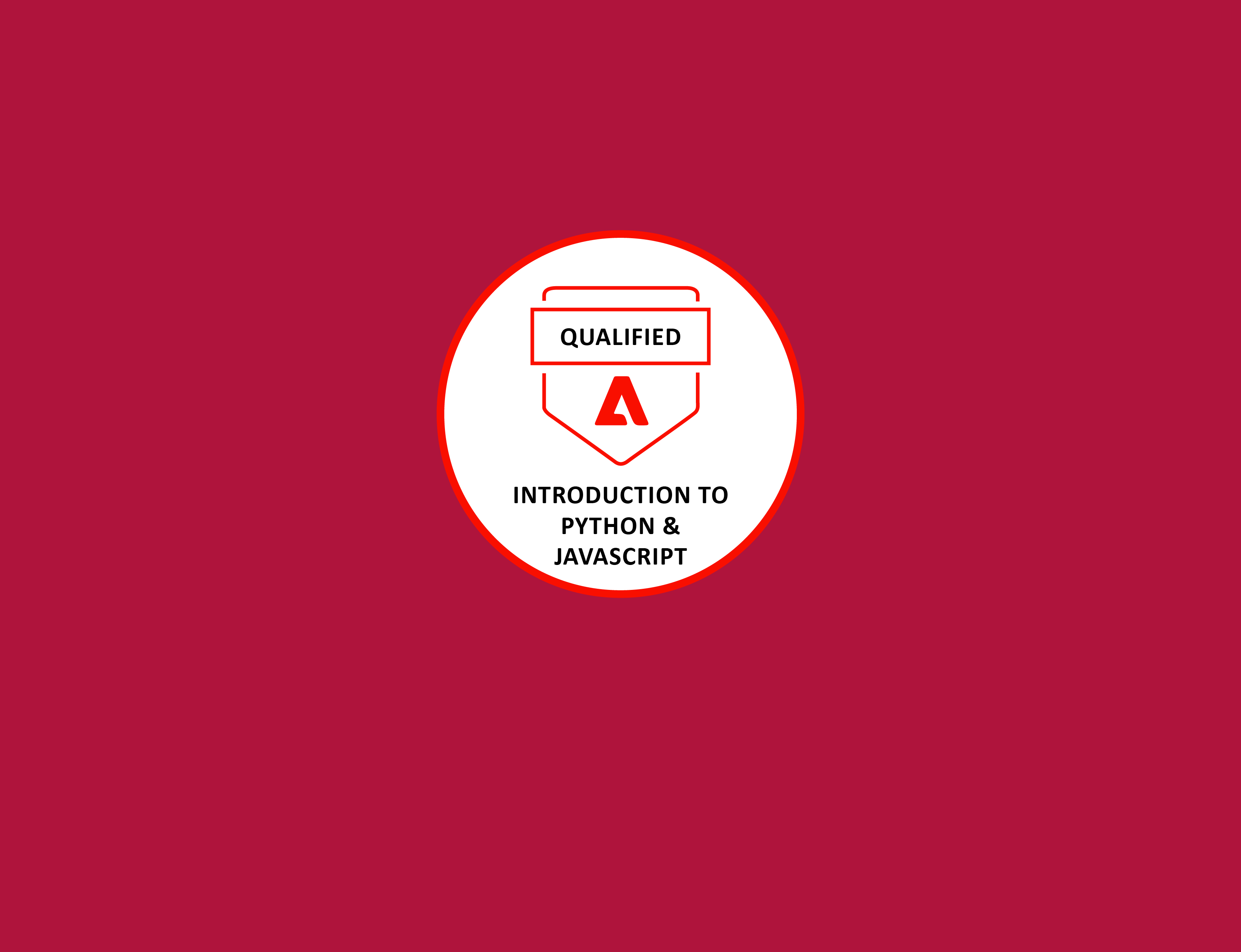Highlight your skills and become Adobe Qualified.
Prove your hands-on experience and gain a competitive edge in your industry by earning a credential through the Adobe Qualified Credential Program.

Prove your hands-on experience and gain a competitive edge in your industry by earning a credential through the Adobe Qualified Credential Program.
This certification is designed for learners who have mastered basic programming concepts and are ready to explore two powerful programming languages—Python and JavaScript. Through hands–on projects, learners will enhance their problem–solving skills and deepen their understanding of coding logic, app development, and interactive programming.
Globally recognized, this qualification introduces learners to the fundamentals of Python and JavaScript, preparing them for more advanced programming challenges and expanding their opportunities in the world of coding and technology.
Level 4: Introduction to Python & JavaScript is designed for learners who have a solid foundation in basic programming and are ready to advance their coding skills. It is ideal for students, young learners, or anyone looking to explore the world of Python and JavaScript programming.
This certification helps learners deepen their understanding of programming principles, enhance their problem–solving abilities, and begin developing more complex applications. It also prepares them for further study in more advanced programming languages and opens up exciting opportunities in fields like software development, app development, and web programming.
Level 4: Introduction to Python & JavaScript is a comprehensive, modular certification program designed to help learners expand their programming skills by exploring two widely–used languages: Python and JavaScript. Each module is carefully crafted to build on existing knowledge, allowing learners to gain a solid understanding of coding principles, logic, and real–world application development.
This flexible program lets learners progress at their own pace, with the opportunity to focus on specific areas of interest such as app development, interactive programming, or web development. By completing these modules, learners will strengthen their problem–solving abilities, develop practical skills, and gain the confidence needed to advance to more complex programming challenges.
There are three modules:
Each module in the Level 4: Introduction to Python & JavaScript certification is assessed through hands–on projects and coding exercises, allowing learners to apply both their theoretical knowledge and practical skills. This modular structure provides the flexibility for learners to progress at their own pace, focusing on areas that align with their programming and development goals.
Upon completing all modules, learners will receive the Adobe Qualified Programming Developer – Level 4 Certification.
There is no Pass or Fail. Results are reported in Bands 1–4, with Band 4 being the highest. Band 1 indicates a limited understanding of Python and JavaScript concepts; Band 2 reflects basic but systematic knowledge; Band 3 demonstrates a solid understanding and practical application of coding skills, and Band 4 signifies a comprehensive mastery of the material.
Level 4: Introduction to Python & JavaScript is designed for individuals who have a foundational understanding of programming and are eager to advance their skills by learning two essential programming languages: Python and JavaScript.
It is suitable for learners who are: